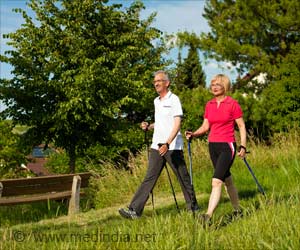Mental well-being can surprisingly predict leisure time physical activity in midlife. Therefore, a new study suggests that your mental health supports physical activity during free time in midlife.

‘Mental well-being can surprisingly predict leisure-time physical activity in midlife. Therefore, a new study suggests that your mental health supports physical activity during free time in midlife.’





Mental well-being was investigated through three dimensions: emotional, psychological and social well-being. Emotional well-being indicates overall satisfaction with life and a tendency to have positive feelings. Psychological well-being refers to experiences of personal growth and the purpose of life. Social well-being tells about relationships with other people and the community.It was a surprise that leisure time physical activity did not predict later mental well-being or subjective health, but mental well-being predicted physical activity. It seems that mental well-being is an important resource for maintaining a physically active lifestyle in midlife, says Dr. Tiia Kekäläinen from the Gerontology Research Center and Faculty of Sport and Health Sciences, University of Jyväskylä, Finland.
Different Types of Physical Activities are Good for Well-being
Investigation of various leisure time physical activities revealed that different activities are associated with the dimensions of well-being in 50-year-old men and women. Walking was related to emotional well-being, rambling in nature to social well-being and endurance training to subjective health.
"Although exercise did not predict later mental well-being or subjective health in this study, exercise is important for current mental well-being and health," Kekäläinen says.
Advertisement
"It is possible that rambling in nature means different things for men and women. For example, it correlated with the frequency of vigorous exercise only among men," Kekäläinen says.
Advertisement
Source-Eurekalert















